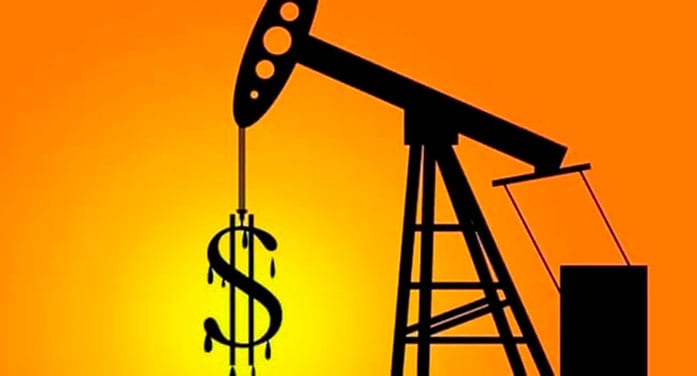 Despite the growing call for a cap on their consumption, fossil fuels are going nowhere. They will continue to drive our energy-driven civilization for the foreseeable future.
Despite the growing call for a cap on their consumption, fossil fuels are going nowhere. They will continue to drive our energy-driven civilization for the foreseeable future.
Global oil demand is on the verge of reaching its pre-pandemic levels. As a result, oil markets posted their biggest gains since at least 2016 as 2021 wound down.
The energy world is in flux. Brent crude oil ended the year up 50.5 per cent, its biggest gain since 2016. And West Texas Intermediate (WTI) posted a 55.5 per cent gain, the strongest performance for the benchmark contract since 2009.
With the COVID-19 pandemic continuing to evolve and impact consumption trends, uncertainty should continue to rule the energy markets in 2022. No one has a real handle on the market and its future direction.
“The oil market continues to be highly reactive to developments on the pandemic front – we’re not out of the woods yet, but we are close to pre-pandemic demand levels,” John Kilduff of Again Capital in New York was quoted as saying by Reuters.
The analysts remain divided – and uncertain – on the course of energy markets in 2022.
Despite record cash flows due to the strengthening markets in recent months, the oil and gas sector faces “peak uncertainty” amid climate and shareholder pressure, Oilprice.com said, quoting Fraser McKay, vice-president of upstream research at Wood Mackenzie.
The industry faces increased pressure to reduce emissions and show investors it can be part of the solution – not the problem – in the global drive toward decarbonization. Although cash flows could hit records next year, “for many stakeholders and even some chief executives, the sector’s risks outweigh its upsides. This tension will define 2022,” McKay added.
A Reuters survey of 35 economists and analysts forecasts that Brent crude will average US$73.57 a barrel in 2022, about two per cent lower than the US$75.33 consensus reached in November. Oil prices in the new year will average between US$65 and US$85 per barrel, “unless some big geopolitical turmoil happens,” according to IHS Markit analyst Daniel Yergin.
Veteran industry analyst Phillip Streible of Blue Line Futures thinks oil prices are at risk of hitting US$60 in the near term due to an Omicron-related demand slowdown. But that will likely prove to be a buying opportunity before a “long-term” rally in 2022, he says.
As to where they expect oil prices to be by the end of 2022, the most popular answer among 132 industry executives who took the survey was that the WTI crude oil price will be somewhere between US$70 and US$74.99 per barrel, Andreas Exarheas said in Rigzone, quoting the latest Dallas Fed Energy Survey released on Dec. 29.
 The U.S. Energy Information Administration (EIA) expects lower crude oil prices in 2022, compared to the November highs of 2021. It projects an average price for next year of about US$70 per barrel.
The U.S. Energy Information Administration (EIA) expects lower crude oil prices in 2022, compared to the November highs of 2021. It projects an average price for next year of about US$70 per barrel.
EIA expects global oil production expansion to outpace demand growth in 2022, “pushing crude oil and petroleum product prices lower than in late 2021.”
Several factors are contributing to the market uncertainty. The still-evolving COVID scenario continues to be a major factor. If the world doesn’t get back to normal, global crude consumption will remain under pressure, keeping the markets on a tight leash. Pressure from the green lobby is also an issue.
A few other factors are also in play.
The supply side of crude economics is increasingly under the hammer. According to the analytics company Kpler, the Organization of Petroleum Exporting Countries and its allies in OPEC+ seem unable to meet their raised production quotas.
OPEC+ – including Russia – agreed to increase crude exports by about 1.8 million barrels per day (bpd). But all of that and more came from Saudi, United Arab Emirates and Kuwait (2.087 million bpd). So even Russia is seeing a pause in production increases despite having a higher quota. The same goes for Iraq, HFI Research reported.
And all this means crude oil price swings will continue to define the market in 2022.
Toronto-based Rashid Husain Syed is a respected energy and political analyst. The Middle East is his area of focus. As well as writing for major local and global newspapers, Rashid is also a regular speaker at major international conferences. He has been asked to provide his perspective on global energy issues by both the Department of Energy in Washington and the International Energy Agency in Paris. For interview requests, click here.
The opinions expressed by our columnists and contributors are theirs alone and do not inherently or expressly reflect the views of our publication.
© Troy Media
Troy Media is an editorial content provider to media outlets and its own hosted community news outlets across Canada.


